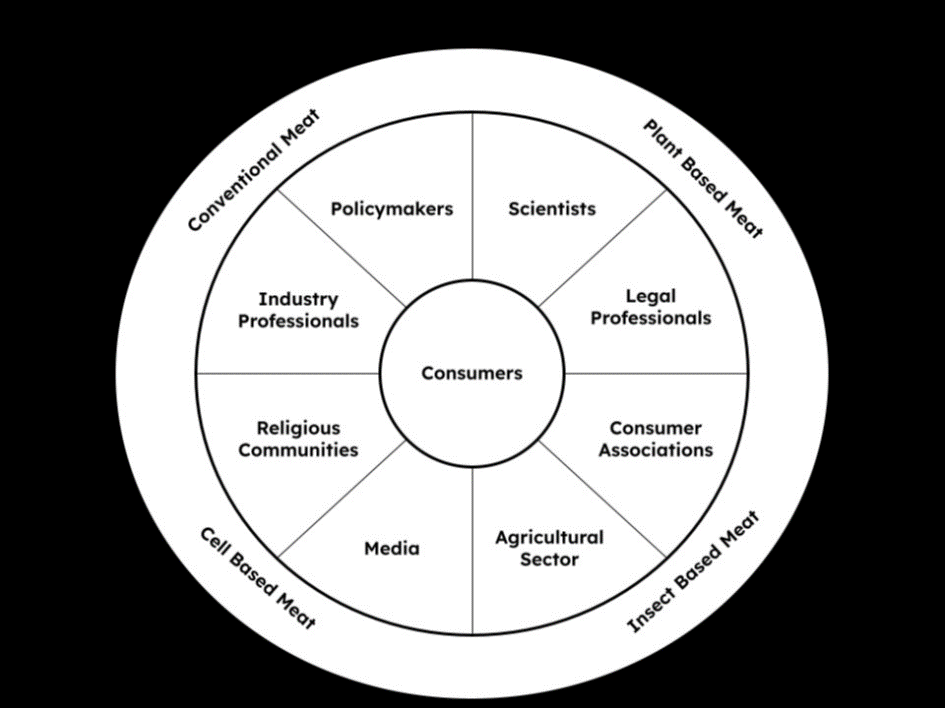[JPI HDHL "FOODRETEC"] - Committed to the responsible development of meat replacement products and practices (ComMEATted)
Committed to the responsible development of meat replacement products and practices (ComMEATted)
Financement : 1,292,461 euros
Début et Durée : 01/03/2024 - 36 mois (01/03/2024-01/03/2027)
Porteur : Elisabeth Lambert (laboratoire Droit et changement social - Université de Nantes)
Programme de recherche: European Joint Programming Initiative “A Healthy Diet for a Healthy Life” (JPI HDHL), Joint Transnational Research Proposals, New food resources and technologies to improve public health and food security (FOODRETEC), ComMEATted, Committed to the responsible development of meat replacement products and practices: comparing multidimensional barriers and potentials in European countries
Résumé :
This project aims at answering the following question: Under which conditions are European consumers and stakeholders in five national contexts (Austria, France, Ireland, Norway and Romania) ready to opt for diets that include alternative proteins (cell-based, plant-based and insectbased meat)? It thus ambitions to build knowledge to facilitate a transition towards the responsible production, provision and consumption of novel meat replacements in Europe. Our project innovates by considering consumer choices in context: social, cultural, regulatory, economic, psychological and ethical, religious or ideological grounds because of complex food practices in Europe. Our objective is to thereby map a range of levers that may facilitate a transition to producing, making, selling, cooking and eating healthy alternative proteins in Europe. This proposal includes exploratory research engaging end-users: consumers but also all stakeholders in the food system. It also aims at building more knowledge on narratives and discourses around meat-alternatives promoted by stakeholders in various national contexts (the food Industry, the agricultural sector, consumers’ associations, scientists, religious and ethical communities, the Media), on the domestic and EU regulatory governance, on labelling as well as on consumers’ attitudes towards novel foods (considering their current food regime, trust in institutions and innovations, beliefs and values, psychological and other determinants). By offering a comparison between national contexts, it will better inform national and European stakeholders, in particular policy-makers. The consortium’s strength results from a strong and pluridisciplinary collaboration between partners from the five national contexts with socioprofessional actors sitting on an advisory board.
Membres de DCS impliqués
Valentine Allard (stagiaire)
Mélis Aras (post-doc)
Katia Barragan
Luc Bodiguel
Sonia Desmoulin
Marine Friant-Perrot
Stéphanie Morandeau
WHAT
WHO
HOW

Partenaires et chercheurs impliqués
2. IRELAND: Maeve HENCHION, Head of Spatial Analysis, Food and Agri Innovation Department Teagasc, Public Research Institute DAFM; Mary McCarthy, Professor of Marketing at the Cork University Business School, UCC;
3. AUSTRIA: Arnd FLORACK, Professor, Applied Social Psychology and Consumer Research, University of Vienna;
4. ROMANIA: Ruxandra Malina, PETRESCU-MAG & Dacinia Crina PETRESCU, Researchers, Consumer Food Security and Labeling Intervention on Food Products, Faculty of Environmental Science and Engineering, Babes-Bolyai University;
5. NORWAY: Sophia EFSTATHIOU, Researcher, Department of Philosophy and Religious Studies, Faculty of Humanities, Norwegian University of science and technology; Silvia COUTINHO, Nutritious Department, Consumer Food Security and Labeling Intervention on Food Products;
6. FRANCE - Toulouse: Sandrine BARREY, Senior Lecturer in Sociology, LISST/CERS, Department of sociology; Julien FIGEAC, CNRS Reseacher in sociology (LISST).



